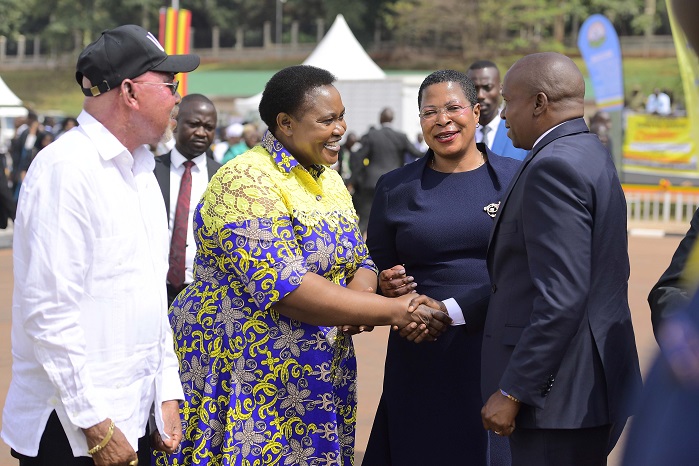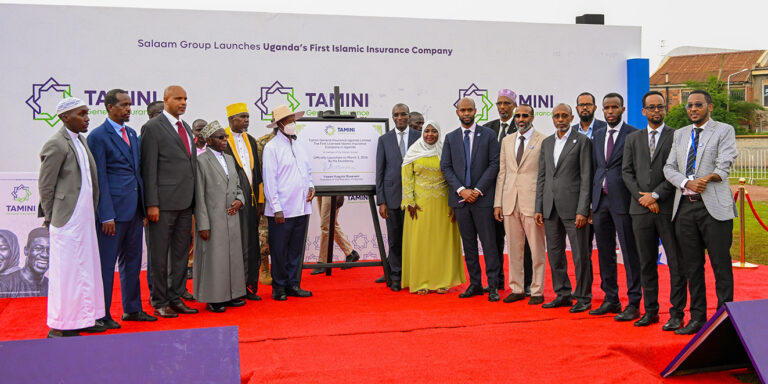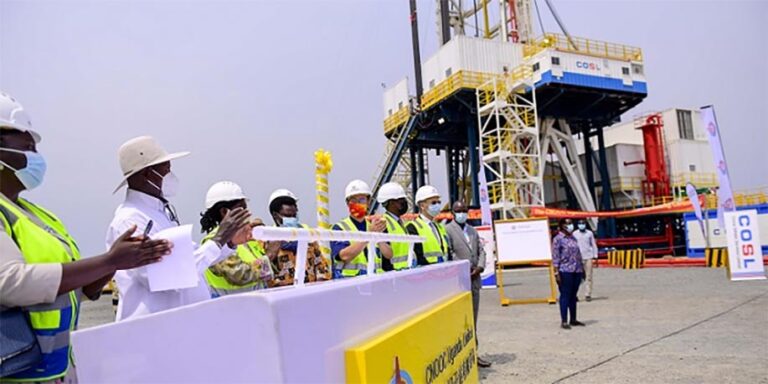
Some of the delegates who attended Uganda’s 63rd Independence Anniversary at Kololo, on 9th October 2025
HABARI DAILY I Kampala, Uganda I With the rise of many factories and the production of goods within the country, Uganda’s economy is set to expand exponentially, hitting a Shs 230 trillion mark by 2026, President Yoweri Museveni said.
Uganda’s economic development rate was an estimated 6.1% in FY 2023/24, and is projected to reach 6.3% in FY 2024/25.
This acceleration in growth is driven by increased household consumption, strong investment, robust domestic demand in sectors like agriculture, manufacturing, construction, and trade services, and continued government strategic interventions.
While speaking during the 63rd Independence Day celebrations at Kololo Ceremonial Grounds on Thursday, Museveni said: “I am happy to inform Ugandans that by June 2026, the economy of Uganda will have grown to $ 66.9 billion (Shs 230 trillion) in size using the forex exchange method, or $ 197.9 billion using the purchasing power parity method,” the President said.
He noted that in this financial year [2025/2026], the economy will grow by seven percent, and after the flow of oil, it will grow by double digits.
The President explained that Uganda has gone through five phases of transformation — from minimum recovery, to expansion, to diversification, to value addition, and now moving into technology — noting that institutions like Kiira Motors represent the next phase of industrial advancement.
He further emphasized that the country must now focus on two critical fronts: economic integration and political integration of the East African Community (EAC).
“What we need to work on now are two issues — economic integration of East Africa to ensure a big market, and political integration of East Africa resulting in a political federation of our region and the whole of Africa,” he said.
Museveni further noted that the remaining part is to engage with our brothers and sisters from Tanzania, Rwanda, Kenya, South Sudan, Burundi, Congo, and Somalia to strengthen our market.
He reiterated that Uganda’s development and progress are rooted in the peace and reconciliation nurtured by the NRM government, and he urged all Ugandans to protect and build upon it.
Unstoppable country
Museveni further said that Uganda is now unstoppable, when it comes to its economic development trajectory.
“No one will stand in our way to development,” he said.
He also reflected on Uganda’s journey over the last six decades, saying that by the country’s 10th Independence Anniversary, Uganda was under “envious dictatorship,” and by the 20th anniversary, the once small economy based on three Cs and three Ts — coffee, cotton, copper, and tobacco, tea, and tourism.
“The economy had completely collapsed. Ugandans were surviving on magendo (black-market trading) and forex rackets before the NRM came in to rescue the country,” he said.
Over the last 50 years, Uganda has made significant development progress. Since the mid 1980’s, the economy has moved from recovery to growth.
A number of economic policies and programs such as the Structural Adjustment Pro- grams (SAPs), Economic Recovery Program (ERP), Poverty Eradication Action Plan (PEAP) have been successfully implemented leading to a boost in economic growth.
Since 2002, the economy grew consistently at an average of 6.4 percent and has since built sufficient momentum for takeoff.




